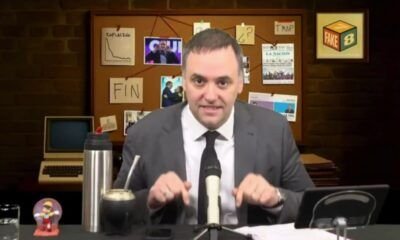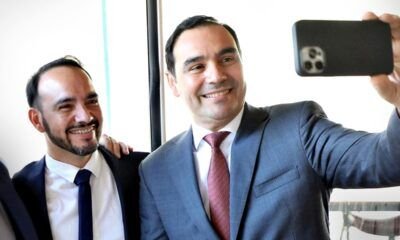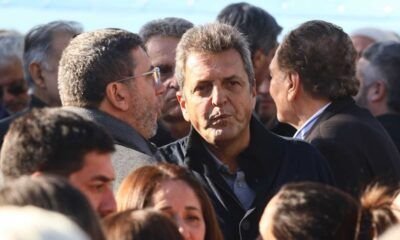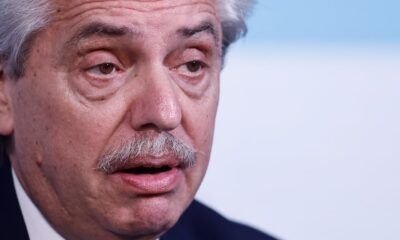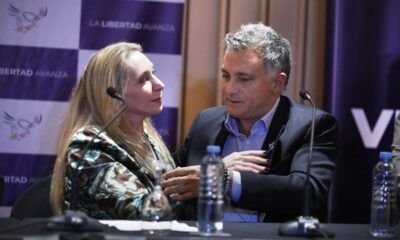INTERNACIONAL
Iran’s long trail of deception fuels skepticism over new nuclear deal as talks continue

Saturday’s talks in Rome between the Trump administration and the Islamic Republic of Iran over the rogue regime’s failure to dismantle its illicit nuclear weapons program have raised pressing questions about whether Tehran will adhere to a new deal.
Speaking on «The Story with Martha MacCallum,» retired Gen. Jack Keane, a Fox News senior strategic analyst, said Iran is reintroducing its «playbook» that [was] used to secure the JCPOA from Obama and termed its strategy a «bold-faced lie» that led to the «disastrous 2015» agreement.
Keane said Iran is repackaging the lie that it will reduce highly enriched uranium down to a low percentage and not use it for a nuclear weapon. Instead, it will employ it for civilian commercial nuclear power. Kean added that the Iranians «think the Trump administration is going to buy this. After all, in 2018, Trump pulled out of that very deal.»
In 2018, President Trump withdrew from the Joint Comprehensive Plan of Action (JCPOA), the formal name for the 2015 nuclear deal brokered by the Obama administration, because, he argued, it failed to stop Iran’s ambitions to construct an atomic bomb.
AHEAD OF TRUMP ADMIN-IRAN TALKS, NEW REPORT SAYS IRAN NUCLEAR THREAT RISES TO ‘EXTREME DANGER’
Iran’s supreme leader, Ali Khamenei, and President Donald Trump (West Asia News Agency, Reuters; Saul Loeb/AFP via Getty Images)
Fox News Digital sent a detailed press query to the State Department regarding the Islamic Republic’s history of cheating and lying when dealing with its previous pledges to not build a nuclear weapon.
A spokesperson for the State Department told Fox News Digital, «This, along with many other issues, will be decided at the negotiating table. The president has been clear: Iran cannot have a nuclear weapon or enrichment program. As we continue to talk, we expect to refine a framework and timetable for working towards a deal that achieves the president’s objectives peacefully.»
Speaking Friday, President Trump told reporters, «I’m for stopping Iran very simply from having a nuclear weapon. They can’t have a nuclear weapon.»
Enrichment of uranium is the key process that enables Iran’s regime to advance its work on a deliverable nuclear weapon.
«Iran’s enrichment is a real, accepted matter,» Iranian Foreign Minister Abbas Araghchi said Wednesday. «We are ready to build confidence in response to possible concerns, but the issue of enrichment is non-negotiable.»
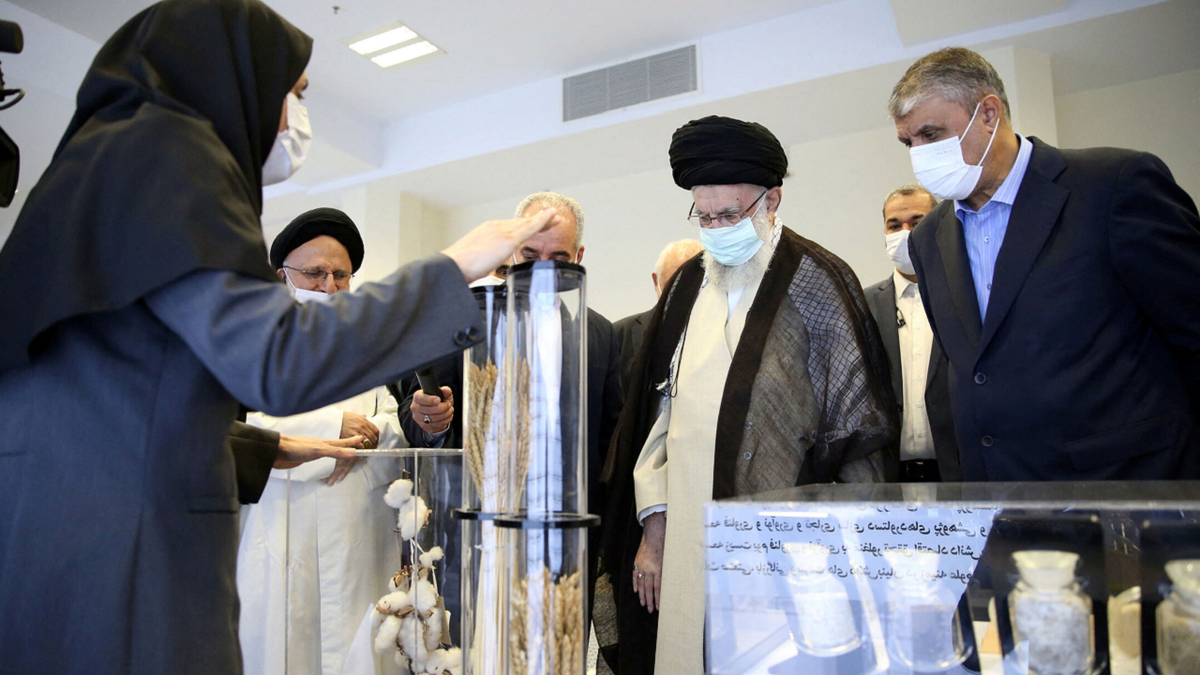
Iran’s supreme leader, Ayatollah Ali Khamenei, views Iranian nuclear achievements on June 11. (Office of the Iranian Supreme Leader/WANA/Reuters)
Mark Wallace, the CEO of United Against Nuclear Iran (UANI) and a former U.N. ambassador to the United Nations under President George W. Bush, told Fox News Digital, «Under the Bush administration, zero enrichment was enshrined in U.N. Security Council resolutions. The Obama administration changed that position, allowing enrichment up to 3.67%, and this paved the way for the failed JCPOA that has allowed Iran to extort the international community ever since.»
The Obama administration’s concession to Iran to permit it to enrich uranium to 3.67% has created new problems for Trump to halt Tehran’s drive to build a weapon. Iran has exploited the right to enrich uranium to speed up its weapons program. The U.N.’s International Atomic Energy Agency announced in February that Iran has produced dramatically more uranium that can be used in six atomic bombs and stressed that Tehran has made no progress on resolving outstanding issues.
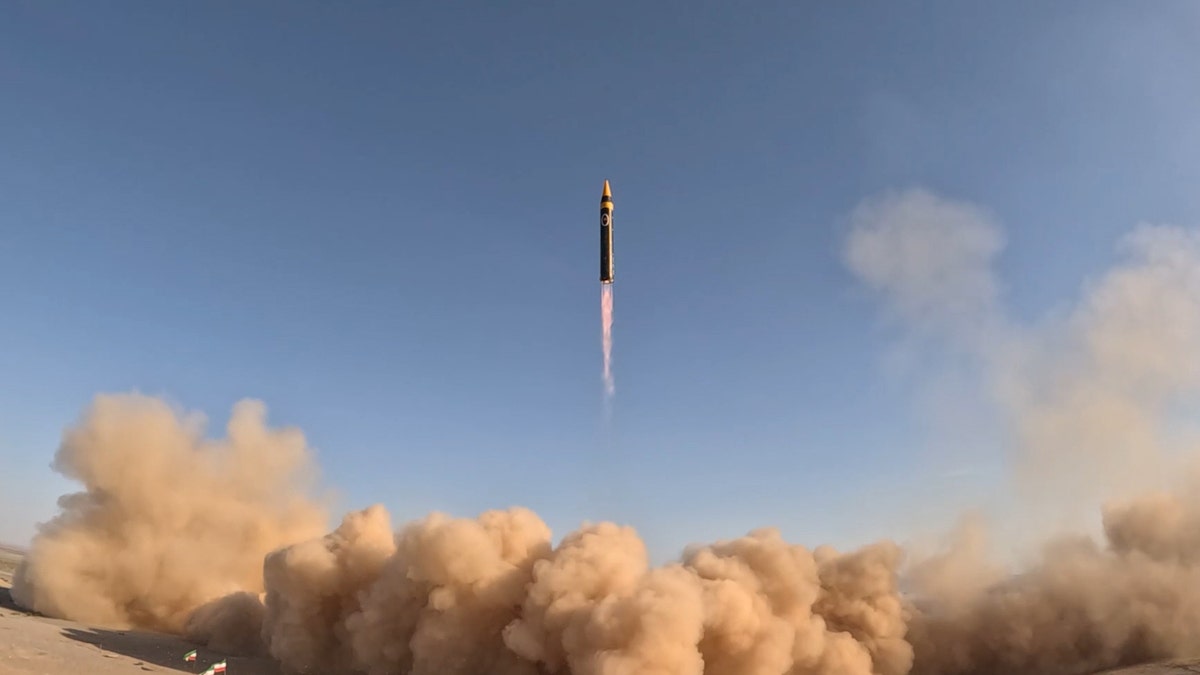
Iran’s medium-range ballistic missile Hayber after a launch during a promotional program organized with the participation of high-ranking military officials in Tehran, Iran, May 7, 2023. (Iranian Defense Ministry/Hanodut/Anadolu Agency via Getty Images)
Trump said in late March he would launch military strikes against Iran if it failed to agree to his demands for a new nuclear pact.
Prior to Trump’s withdrawal from the JCPOA, Fox News Digital reported in 2017 that Iran tried to obtain illicit technology that could be used for military nuclear and ballistic missile programs, raising questions about a possible violation of the 2015 agreement intended to stop Tehran’s drive to become an atomic armed power, according to three German intelligence reports.
TRUMP HAS A TIMELINE IN MIND FOR IRAN NUKE DEAL, TAPS ISRAEL TO LEAD ANY POTENTIAL MILITARY ACTION
The Trump administration has outlined a two-month framework to reach a deal with Iran, John Hannah, a senior fellow at JINSA, said during a briefing about Iran’s nuclear weapons program Thursday.
Hannah served in senior advisory roles with former Vice President Dick Cheney and was intimately involved in developing U.S. strategy toward talks with Iran over Afghanistan, Iraq and the Islamic Republic’s nuclear program throughout President George W. Bush’s two terms in the White House.
Traditionally, military pressure has influenced the Islamic Republic of Iran’s recalcitrant and anti-American leaders to make concessions. The U.S. invasion of Iraq in 2003 reportedly compelled the clerical regime’s Supreme Leader, Ali Khamenei, to briefly pause his country’s work on nuclear weapons.
Khamenei feared American military action at the time.

Iranian Foreign Minister Abbas Araghchi, left, meets Omani counterpart Sayyid Badr Albusaidi before negotiations with U.S. Mideast envoy Steve Witkoff in Muscat, Oman, April 12, 2025. (Iranian Foreign Ministry via AP)
Hannah said Trump’s «military threat is what brought Supreme Leader Khamenei to the table» because it «put his own regime at risk.» Hannah outlined what dismantlement «with a capital D» would mean for Iran. He said «all of their enriched uranium leaves the country,» and the centrifuges are destroyed and taken out of the country. Hannah said Iran’s secretive underground Fordow nuclear fuel enrichment plant and Natanz nuclear site were where Iran was caught digging tunnels in the mountains.
Hannah’s organization, JINSA, released an infographic Wednesday that focused in on Trump administration officials’ comments on verification and dismantlement.
According to a Reuters report, a senior Iranian official said Friday that Iran told the United States in talks last week it was ready to accept some limits on its uranium enrichment but needed watertight guarantees President Donald Trump would not again ditch a nuclear pact.
Tehran’s red lines «mandated by Supreme Leader Ayatollah Ali Khamenei» could not be compromised in the talks, the official told Reuters, describing Iran’s negotiating position on condition of anonymity.
He said those red lines meant Iran would never agree to dismantle its centrifuges for enriching uranium, halt enrichment altogether or reduce the amount of enriched uranium it stores to a level below the level it agreed in the 2015 deal that Trump abandoned.
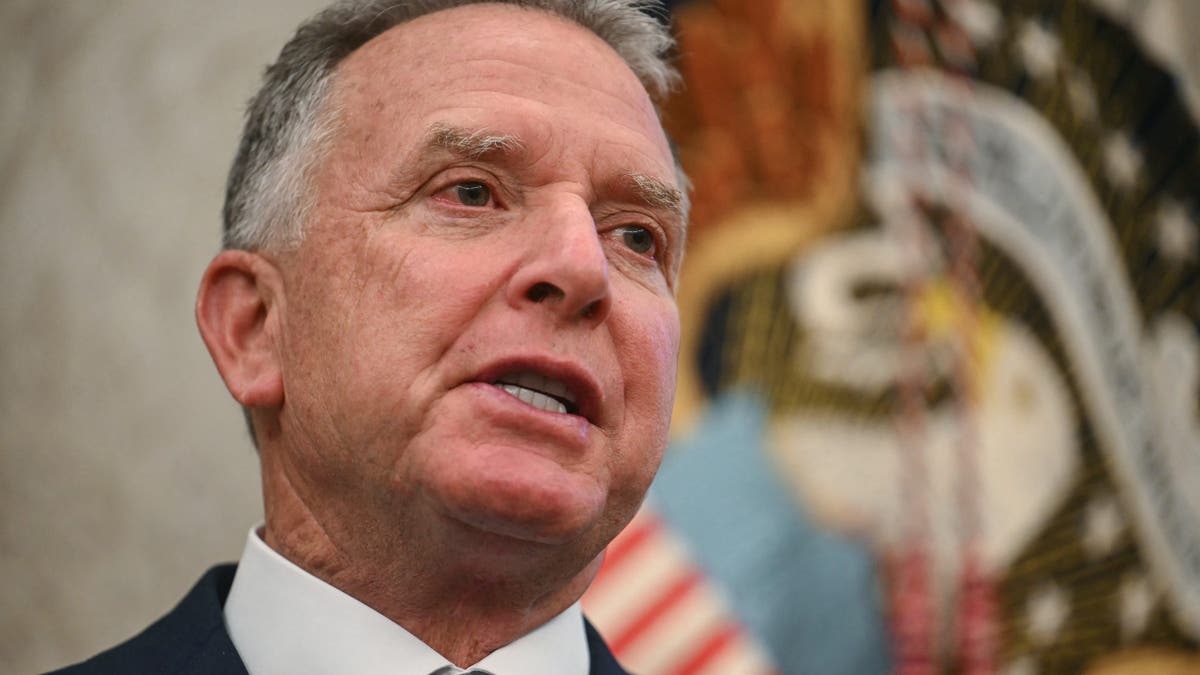
U.S. Special Envoy to the Middle East Steve Witkoff speaks after President Donald Trump signed an executive order to create a U.S. sovereign wealth fun, in the Oval Office of the White House Feb. 3, 2025, in Washington, D.C. (Jim Watson/AFP via Getty Images)
CLICK HERE TO GET THE FOX NEWS APP
It would also not negotiate over its missile program, which Tehran views as outside the scope of any nuclear deal.
Top U.S. negotiator Steve Witkoff, in a post on X on Tuesday, said Iran must «stop and eliminate its nuclear enrichment» to reach a deal with Washington.
Reuters contributed to this report.
INTERNACIONAL
Ahora Trump dice que «puede que en algún momento» hable con Brasil sobre los aranceles del 50%
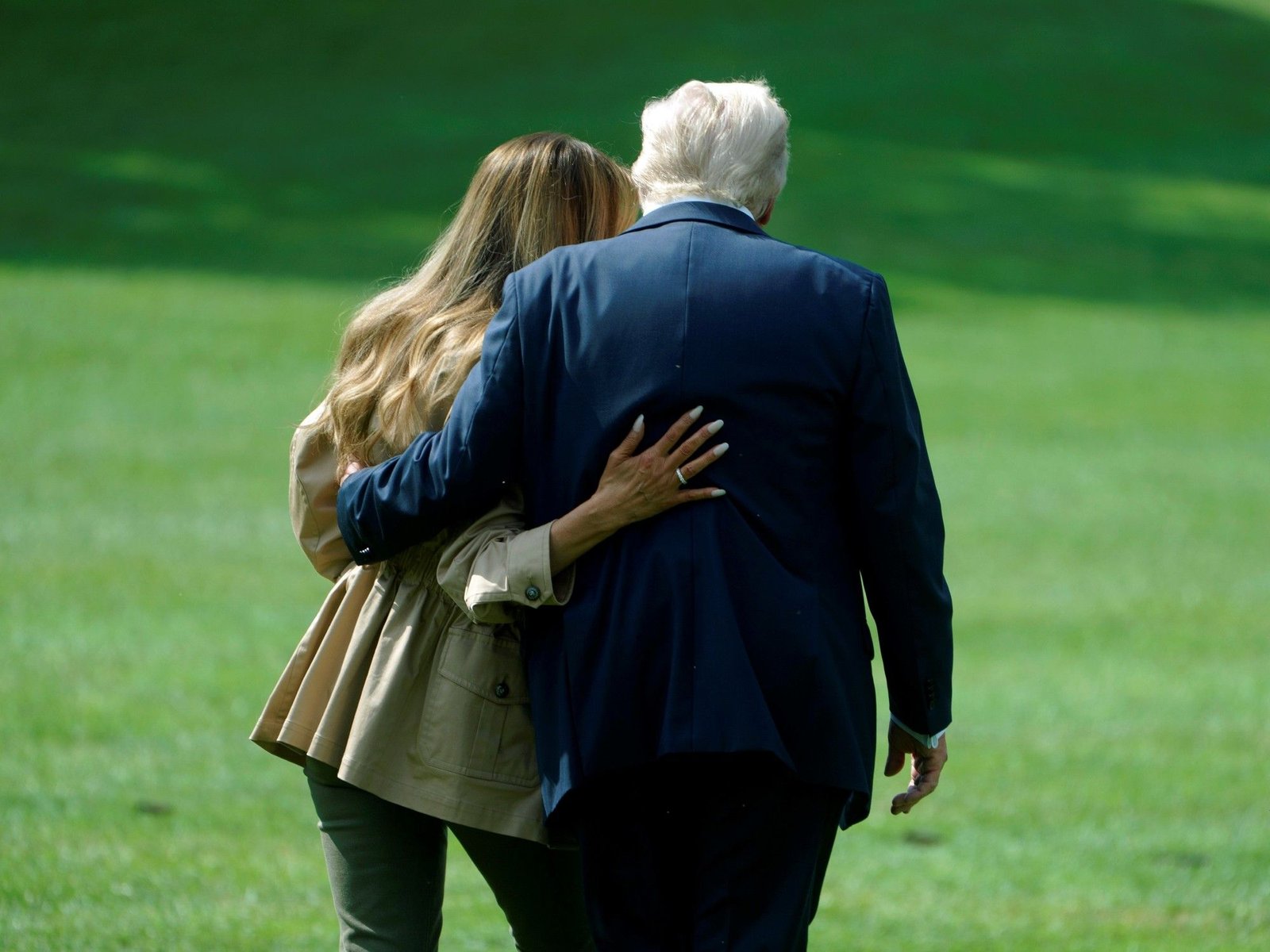
El presidente Donald Trump dijo este viernes que quizás hable “en algún momento, pero no ahora” con el jefe de Estado brasileño Lula Da Silva sobre los aranceles de 50% que anunció sorpresivamente para Brasil y que disparó una fuerte tensión entre Estados Unidos y el gigante sudamericano. El republicano insistió además con su reclamo: “(Lula) está tratando al presidente (Jair) Bolsonaro de manera muy injusta”.
Trump partió en la mañana de este viernes rumbo a Texas para observar de primera mano la devastación causada por la catastrófica inundación de la semana pasada, que provocó al menos 120 muertos y decenas de desaparecidos, entre ellos varias niñas que estaban en un campamento de verano.
De traje azul, sin corbata, Trump estaba acompañado de su esposa Melania, que no suele sumarse a las actividades oficiales, con una chaqueta beige Dolce&Gabbana y zapatillas Converse.
Antes de subirse al helicóptero que desde los jardines de la Casa Blanca lo transportó a la base Andrews a tomar el avión, Trump habló con los periodistas sobre varios temas, entre ellos la tensión con Brasil.
Concretamente le preguntaron si tenía planes de hablar con el presidente Lula sobre los aranceles del 50% a todos los productos brasileños que ingresan a EE.UU, que se aplicarán a partir del 1 de agosto y que el mismo Trump anunció en una carta el miércoles.
El republicano justificó la fuerte suba con razones que van más allá de lo estrictamente comercial. Según él, existe una “caza de brujas” contra el ex presidente Bolsonaro, acusado en la justicia de promover un golpe de Estado en Brasil y que podría ser condenado por el Supremo Tribunal Federal a más de 30 años de prisión.
En su respuesta a los periodistas, Trump dejó la puerta abierta al diálogo, pero no demasiado. “Quizás hable con él en algún momento, pero no ahora”, dijo. Esta declaración se produce después de que el líder del Partido de los Trabajadores (PT) afirmara en una entrevista con Globo que no tiene planes de hablar con el magnate republicano por ahora, pero que lo hará si lo considera necesario en el futuro.
Enseguida Trump continuó con una defensa del ex mandatario. “Está tratando al presidente Bolsonaro de forma muy injusta”, agregó.
Y siguió: «Es un buen hombre. Lo conozco bien, negocié con él. Era un negociador muy duro, un hombre muy honesto que ama al pueblo brasileño», dijo Trump. «No debería haberme caído bien porque era muy difícil negociar con él, pero también muy honesto, y conozco tanto a los honestos como a los corruptos», enfatizó Trump.
Al utilizar como argumento la supuesta “caza de brujas” contra Bolsonaro, la tensión entre los dos países es difícil de bajar porque ya no se trata de un problema comercial sino político.
Trump parece empeñado en “salvar” a su amigo de la justicia. Con ideas conservadoras, hábil uso de redes sociales y estilo crudo que muchas veces maltrataba a mujeres y minorías, Bolsonaro era conocido en Washington como el “Trump del trópico”.
El jefe de la Casa Blanca se siente identificado con Bolsonaro quien, como él en 2020, desconoció que había perdido las elecciones y denunció un fraude electoral. Muchos ven también un paralelismo en el asalto a edificios gubernamentales de Brasilia en 2023 por parte de militantes bolsonaristas con la invasión al Capitolio del 6 de enero de 2021 en medio de una marcha de simpatizantes de Trump.
Pero el tema en Brasil está en manos de la Corte Suprema y, por más que Lula quisiera, el poder ejecutivo supuestamente no puede influir en las decisiones de la justicia. Lula ya ha calificado la postura del estadounidense como una “injerencia” e “intromisión” en los asuntos internos. “Brasil es una nación soberana con instituciones independientes y no aceptará ninguna forma de tutela”, advirtió.
Más allá de lo político, en su carta a Lula el republicano alegó un «déficit insostenible» en las relaciones comerciales entre ambos países, a pesar de que el gobierno brasileño afirma haber tenido un superávit de más de 400.000 millones de dólares a favor de Estados Unidos en los últimos 15 años.
Mientras tanto, el gobierno de Lula analiza responder a Trump con suba de aranceles a productos estadounidenses que ingresan a Brasil. Aunque el jefe de la Casa Blanca ya amenazó que si los aumentan él los subirá aún más.
INTERNACIONAL
FBI’s Dan Bongino thinking of resigning after clash with AG Pam Bondi over Epstein files fallout: Source
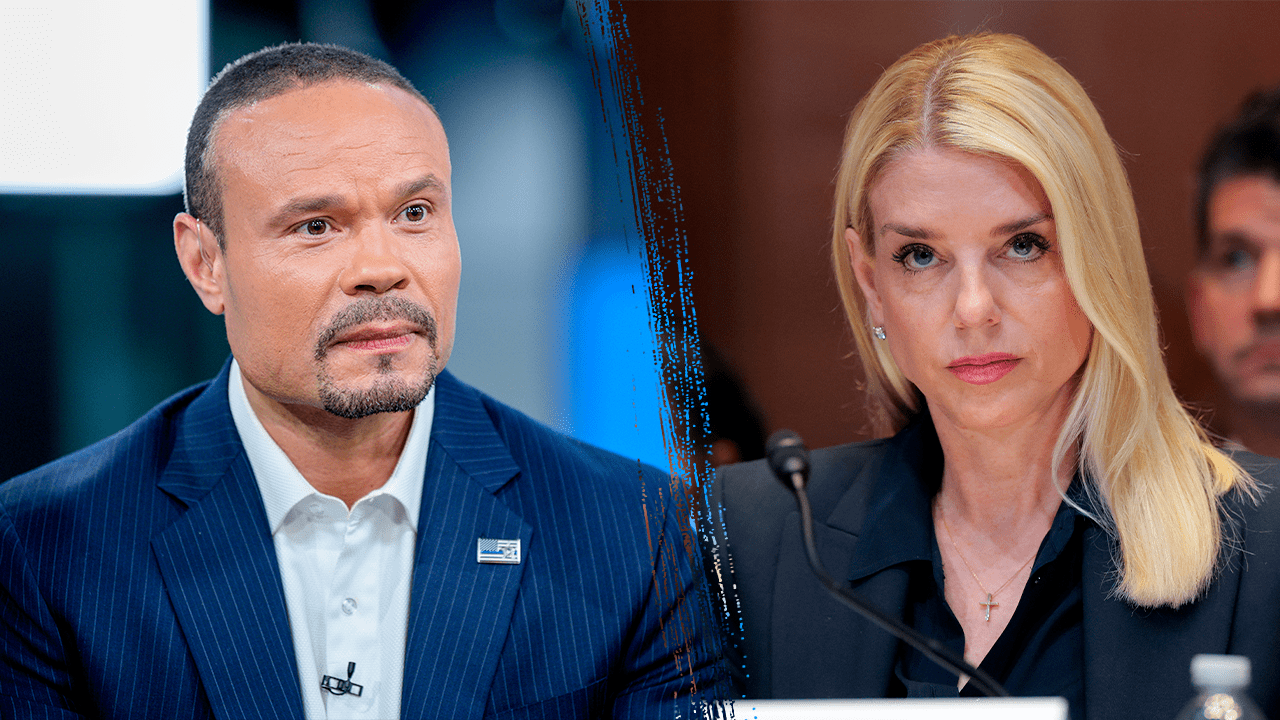
NEWYou can now listen to Fox News articles!
FBI deputy director Dan Bongino is considering resigning over the Justice Department’s handling of the Jeffrey Epstein files, a source told Fox News Digital, noting that Bongino took a day off from work on Friday due to his frustrations.
Bongino has not been seen in the office since Wednesday, a source told Fox News Digital. He has yet to make a final decision about his future, the source said.
The latest revelation comes on the heels of a heated argument between Bongino and U.S. Attorney General Pam Bondi that occurred on Wednesday at the White House, two sources confirmed.
BONDI UNDER SIEGE AFTER DOJ REVEALS NO EPSTEIN CLIENT LIST
Jeffrey Epstein and Attorney General Pam Bondi. (Rick Friedman Photography/Corbis; Getty Images)
Bondi and FBI Director Kash Patel have been in touch several times during the past few days and are on the same page, a source told Fox News Digital.
Sources close to Bondi say she has no intention of stepping down and is proud of the department and its work. Patel, too, says he is happy with his job and has no intention of leaving, a source in close contact with the director told Fox News Digital.
«President Trump has assembled a highly qualified and experienced law and order team dedicated to protecting Americans, holding criminals accountable, and delivering justice to victims. This work is being carried out seamlessly and with unity,» White House Principal Deputy Press Secretary Harrison Fields told Fox News Digital. «Any attempt to sow division within this team is baseless and distracts from the real progress being made in restoring public safety and pursuing justice for all.»
Earlier on Friday, Deputy Attorney General Todd Blanche also pushed back on reports of internal strife.
«I worked closely with @FBIDirectorKash and @FBIDDBongino on the joint FBI and DOJ memo regarding the Epstein Files,» Blanche posted on X. «All of us signed off on the contents of the memo and the conclusions stated in the memo.
«The suggestion by anyone that there was any daylight between the FBI and DOJ leadership on this memo’s composition and release is patently false.»
The Department of Justice (DOJ) and FBI on Sunday released a joint review that ended theories about an alleged Epstein client list, concluding there was no such list detailing the names of the world’s elite who allegedly took part in Epstein’s history as a sexual predator.
The DOJ also concluded the disgraced financier committed suicide in his New York City jail cell in 2019 while awaiting further sex trafficking charges.
The latest revelation comes on the heels of President Donald Trump’s quip to a White House reporter during a cabinet meeting, in which he called the late sex criminal and financier a «creep.»
«Can I just interrupt for one second?» Trump said after a reporter directed an Epstein question at Bondi. «Are you still talking about Jeffrey Epstein?»
HEAD HERE FOR THE LATEST FOX NEWS POLLING
«This guy’s been talked about for years. You’re asking.… We have Texas, we have this, we have all of the things. And are people are still talking about this guy, this creep?» Trump asked. «That is unbelievable.»
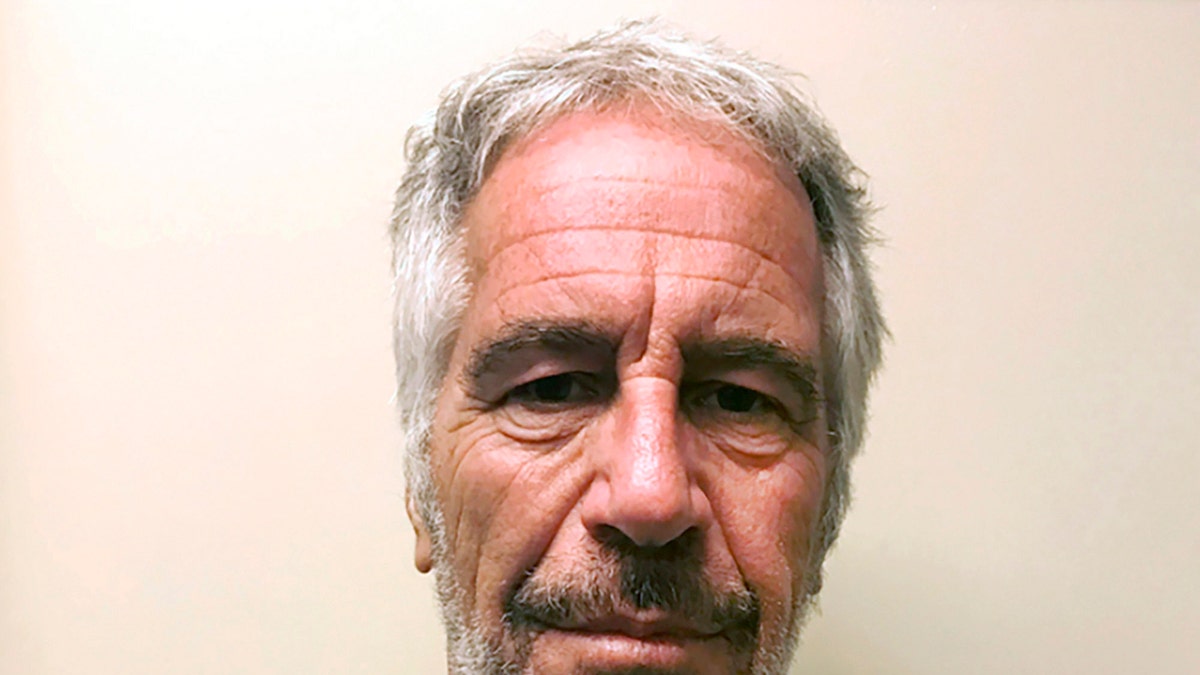
Jeffrey Epstein. (AP, File)
Public outrage ensued following the release of a prison surveillance video that the administration used to prove that no one entered Epstein’s cell in the hours leading up to his death.
The 10-hour video, though, has one minute missing, which has fueled conspiracy theories that the administration is participating in a cover-up involving Epstein’s death.
«President Trump is proud of Attorney General Bondi’s efforts to execute his Make America Safe Again agenda, restore the integrity of the Department of Justice, and bring justice to victims of crime. The continued fixation on sowing division in President Trump’s Cabinet is baseless and unfounded in reality,» said White House press secretary Karoline Leavitt.
Fox News Digital’s Emma Colton contributed to this report.
INTERNACIONAL
Ataxias hereditarias: investigadores argentinos revelaron cuáles son los síntomas clave

Las ataxias hereditarias forman parte de un grupo de enfermedades del sistema nervioso. Hacen que para el cuerpo humano sea difícil controlar los movimientos de manera precisa.
Se llaman “hereditarias” porque pasan de padres a hijos a través de los genes. Son enfermedades poco frecuentes que afectan principalmente el cerebelo y esporádicamente los nervios, por lo que provocan pérdida de equilibrio y coordinación.
En la revista especializada The Cerebelum, se publicó el estudio más completo sobre la situación de las ataxias hereditarias en la Argentina.

Uno de los autores es Marcelo Merello, investigador del Conicet y director de la carrera de médico especialista en neurología del Fleni y la Universidad de Buenos Aires.
El otro coautor es Malco Rossi, médico neurólogo e investigador del Conicet y del Servicio de Movimientos Anormales del Departamento de Neurología en Fleni.

Las ataxias hereditarias llevan a que el cuerpo pierda equilibrio y coordinación. “Las personas que las tienen suelen caminar dando pasos inseguros, como si estuvieran mareadas, y también pueden perder fuerza en brazos y piernas”, explicó el doctor Merello al ser entrevistado por Infobae.
“Los síntomas motores más frecuentes incluyen inestabilidad al caminar, dificultad para coordinar los brazos y problemas del habla”, precisó.
Otros síntomas también pueden ser: la fatiga, la visión doble y los problemas en la escritura.

Los síntomas pueden empezar desde la infancia temprana, pero lo más común es que se presenten durante la adolescencia o la juventud.
“No obstante, los adultos pueden presentar también algunos tipos de ataxias hereditarias”, mencionó el doctor Rossi.

Los investigadores recopilaron información de todo el país sobre tipos más comunes y formas de aparición de las ataxias hereditarias.
Se propusieron estudiar a fondo la situación porque muchos casos de pacientes quedaban sin respuesta, y las familias no sabían las causas reales.
Aunque existen muchas formas de las enfermedades, los investigadores encontraron que las más comunes en la Argentina son la ataxia de Friedreich (ATX-FXN) y las llamadas ataxias espinocerebelosas.
Si bien se han descripto más de 40 ataxias espinocerebelosas, las SCA1 (ATX-ATXN1), SCA2 (ATX-ATXN2) y SCA3 (ATX-ATXN3) son las más prevalentes en el país.

También encontraron diferencias con otros países. En Argentina la SCA2 es la forma más frecuente de ataxia espinocerebelosa, pero, a diferencia de Brasil, Perú y México, la SCA10 casi no aparece.
“Estas diferencias en la distribución de subtipos pueden deberse a efectos fundador y patrones migratorios históricos”, afirmaron los investigadores.
Esta diferencia de prevalencia con otros países de la región es importante para guiar al profesional médico.

Uno de los objetivos fue mostrar lo necesario que es saber cuántos y cómo viven los pacientes con ataxia.
Sin embargo, todavía no hay un registro exacto de cuántas personas tienen ataxia hereditaria en el país, y eso hace más difícil saber cuán grave es el problema.
“La falta de registros nacionales y de información epidemiológica dificulta la comprensión real de la magnitud del problema”, explicaron los autores.

Además, el estudio constató que entre el 65 % y el 82 % de los pacientes con ataxias hereditarias no alcanzan diagnóstico genético definitivo.
Pese a usar tecnologías modernas, que incluyen la secuenciación de exomas y las búsquedas de expansiones anormales de genes, muchas veces no lograron identificar la causa genética.
Otra barrera es la dificultad y el alto costo para realizar los análisis genéticos. “El costo elevado de los estudios, la devaluación y las restricciones cambiarias restringen la disponibilidad de los análisis genéticos en el sistema público-privado. A esas situaciones se suma la dificultad para enviar muestras de sangre al extranjero”, dijo Merello.
El acceso a pruebas genéticas en Argentina se ve dificultado por múltiples factores, incluyendo cobertura de seguros limitada y costos crecientes de reactivos. Algunas familias deben esperar años para saber el nombre exacto de la enfermedad.

Los especialistas propusieron cinco acciones para que las personas con ataxias hereditarias reciban mejor atención y tratamiento:
- implementar estudios de cohortes con mejor tecnología
- crear un registro nacional de pacientes con ataxias
- reforzar la colaboración internacional
- crear centros de atención interdisciplinaria
- mejorar el acceso a pruebas genéticas
“A partir de la investigación, se destaca la importancia de que las personas, sus familias y los profesionales de la salud puedan identificar los síntomas de manera rápida y que se pueda trabajar en conjunto para acompañar a los pacientes”, resaltó el doctor Rossi.

Consultado por Infobae, el médico neurólogo Marcelo Kauffman, investigador del Conicet y jefe de la Unidad Neurogenética del Hospital Ramos Mejía de Buenos Aires, coincidió en que “los pacientes con ataxias hereditarias enfrentan todavía barreras para acceder a un diagnóstico genético, principalmente por las dificultades para obtener la financiación de los estudios a través de un sistema de salud fragmentado”.
En 2020 Kauffman junto con Josefina Pérez Maturo, Lucía Zavala y colaboradores habían publicado un estudio de cohortes que reveló que solo uno de cada tres pacientes con ataxia hereditaria recibe un diagnóstico molecular preciso, aunque la cifra mejora notablemente en quienes tienen antecedentes familiares. Se publicó en Journal of Human Genetics.
“Si bien el acceso a los estudios genéticos presenta desafíos, nuestro trabajo de investigación permitió alcanzar un diagnóstico molecular en el 34 % de nuestra cohorte, un dato también recogido en el trabajo de Rossi y Merello”, señaló Kauffman, quien forma parte del Instituto de Investigaciones en Medicina Traslacional (IIMT), que depende del Conicet y el Hospital Austral.
Ese resultado -opinó- “subraya la importancia de mantener la financiación para sostener los equipos de especialistas y la infraestructura que han hecho posibles estos avances cruciales para decenas de familias”.
,beanie,blouse,fr,hand,head,keeping,lady,looking,upset,wonderful
-
ECONOMIA3 días ago
Este debería ser el precio del dólar en la Argentina según el Índice Big Mac
-
POLITICA22 horas ago
Causa Seguros: la Justicia procesó a Alberto Fernández por incompatibilidad en los deberes de funcionario
-
POLITICA2 días ago
Sebastián Pareja confirmó el nombre de la alianza con el Pro, que impone el sello libertario













